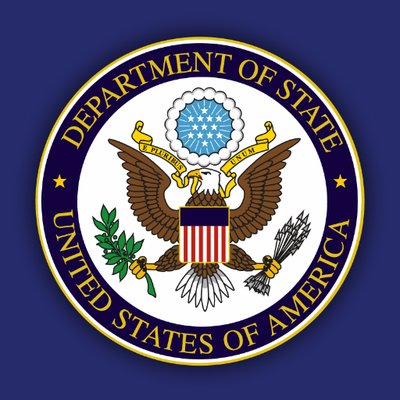The continuing spread of Ebola has become the most prominent global threat. The number of Ebola cases reported in the current outbreak topped 10,000, with the death toll rising to 4,922. Although three West African countries have suffered the most, the disease has already popped up in the U.S. and Spain. According to a warning issued by the World Health Organization, it was a matter of time before the Ebola pandemic ravaged the world if no effective measures were taken. The World Bank Group recently released a report saying the financial impact of Ebola could reach 32.6 billion dollars by the end of 2015.
Ebola has become a significant issue in U.S. domestic politics, as well as foreign policy, with a need for strong international cooperation. The U.S., which suffered its first Ebola fatality, is also threatened by the disease. Four cases are under control while another three people are being treated, but the Ebola panic has gradually gripped the country. Ebola even emerged as a hot-button issue in the run-up to the November 4 midterm elections. President Obama declared the Ebola outbreak a “national security priority”, boosted medical aid to West Africa, sent 3,000 troops to Liberia and proposed a plan of spending up to 1 billion dollar fighting Ebola.
Fighting Ebola also affects China’s national security, interests and image. China and Africa have witnessed a large increase in people-to-people contacts and exchanges. On the one hand, China feels the agony of its African friends and, as a responsible power, will not sit idle. On the other hand, with the wider spread of Ebola, China is also at a serious risk from an Ebola outbreak and thus has the internal momentum to safeguard its national security. China has already sent three rounds of aid to Ebola-stricken countries in April, August and September this year for a total of 234 million yuan. On October 24, Chinese President Xi Jinping announced that China would provide a fourth-round of emergency aid valued at 500 million yuan to African countries for fighting Ebola.
Cooperation between China and the U.S. is necessary, and will also become a tangible reflection of the new type of great power relations. With great influence in the world, both countries have the funds, technology, medical devices and experience needed to fight Ebola. The two countries’ advantages are complementary, which does not only increase the efficiency of the aid, but can also shore up the confidence of the international community. It is obvious that China-U.S. relations in the past year were disrupted by third party factors. Disputes over the South China Sea and East China Sea have worsened the diplomatic climate. Both countries are aware of the importance of China-U.S. relations, which has already gone beyond bilateral dimension and influenced trends in international relations. However, the foundation of China-U.S. cooperation seems a little shaky. China has started its economic transformation while the U.S. has actively promoted its manufacturing, making the two sides less complementary but more competitive; the U.S. has pivoted its strategic priority from anti-terrorism to Asia-Pacific affairs, reducing bilateral cooperation on fighting terrorism while intensifying the geopolitical competition. Building up cooperation has become the most important concern for the two countries. Strategists on both sides have realized that the development of China-U.S. relations in the new era should be motivated by jointly tackling global issues, such as climate change, nuclear nonproliferation and cyber security.
Fighting Ebola should be one of the new areas in which China and the U.S. cooperate with each other. Both countries should maintain the security and development of Africa. The practical actions will prove that third party factors can serve as sources in generating momentum to boom China-U.S. relations and realize a new type of great power relations. The upcoming APEC meetings will provide a new opportunity for bilateral cooperation. Specifically speaking, China and the U.S. could cooperate in the following fields.
First, China and the U.S. should make a joint effort to provide finances, expertise, equipment and experience support to Africa. China could make use of its advantage in infrastructure and equipment manufacturing while the US could provide relevant know-how. China and the U.S. should expand cooperation in public health. The West should be more open-minded towards Chinese medical experience and Chinese pharmaceutical products. It is advisable that both sides strengthen bio-technological exchanges and jointly develop a new vaccine.
Secondly, China and the U.S. should increase cooperation efforts under the framework of international and regional organizations. Both sides should give more support to work by the World Health Organization, African Union and Economic Community of West African States and to provide necessary economic and political support, to help them play a leading role in the fight against Ebola, to improve cooperation framework in international and regional public health management and to provide long-term support to public health development in Africa.
Thirdly, China and the U.S. could consider setting up an ad hoc working group and establishing a new cooperation framework in bilateral public health exchange. At present, although China and the U.S. have had extensive and full-fledged cooperation in education, culture and the like, cooperation in technology and health is yet to be improved. It is advisable that bilateral cooperation in this area be strengthened and incorporated under the framework of China-U.S. People-to-People Exchange.
Fourthly, China and US should promote their experiences in fighting epidemics, such as China’s fight against SARS and U.S. against Ebola and jointly promote Nigeria and other countries’ success story in fighting against Ebola. China and the U.S. could set an example for international cooperation in fighting epidemics and call on developed and developing countries alike to cooperate. Both sides should encourage participation from businesses and society, and in the meantime disseminate knowledge about preventing epidemics like Ebola among the public so as to avoid panic in Africa and the world at large.


